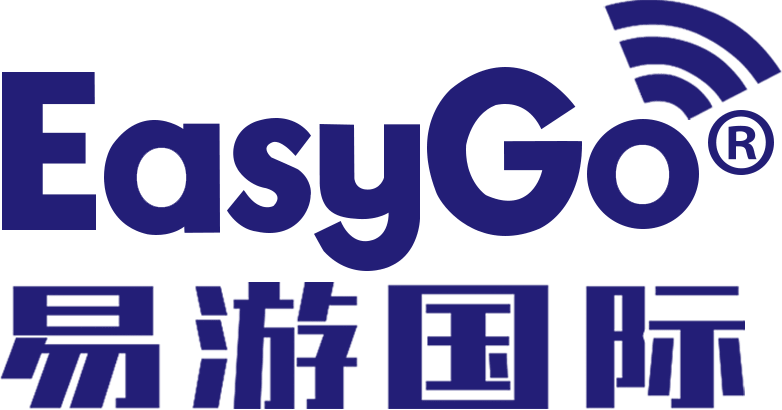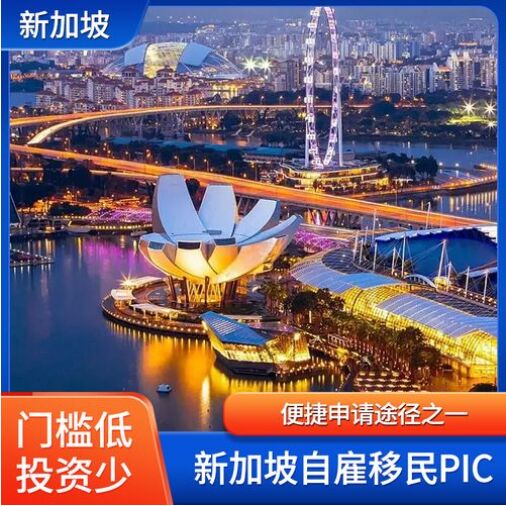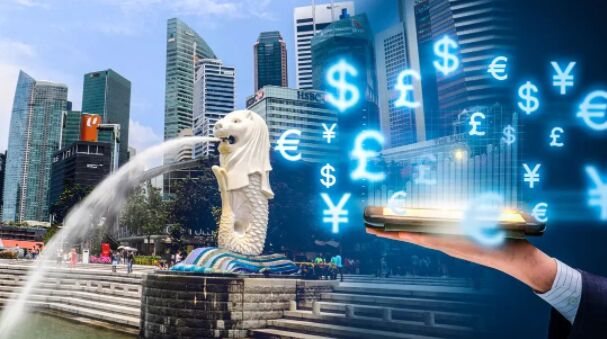您好,欢迎光临EasyGo易游国际,我们提供全球【签证办理】【移民绿卡】【机票预订】【公证认证】【法律支援】【商标注册】等各国出入境服务

THE OFFICIAL PARTNER
HOT LINE
19896549345
中文 / English
Popular science of immigration status in Singapore: What are EP, TP, GIP and PR?
There are many ways to immigrate to Singapore, including investment, employment, technology, entrepreneurship The identity that can be obtained eventually is also different. EP, TP, GIP, PR are the words you often hear about the status of new immigrants. What are the differences between them? Which one can meet your needs? EasyGo International will introduce you in detail~

1、 What is Singapore EP?
The Singapore EP Employment Pass is the highest level work permit set by the Ministry of Manpower (MOM) of Singapore for foreign professionals (management, administration or professional work).
From September 1, 2022, the minimum monthly salary for EP application is S $5000.
2、 What is Singapore TP?
Singapore launched the Technology Pass (TP) in 2020, aiming to attract foreign technology experts to enter Singapore's technology industry and promote the development of Singapore's technology ecosystem. The application for science and technology permit will be open from January 2021, and the first batch of 500 places will be opened.
Application conditions (two of the following three conditions can be satisfied)
1.The fixed monthly salary in the past year shall be at least S $20000 or equivalent foreign currency;
2. He has held a leading position in a technology company with a market value of at least US $500 million or a capital of at least US $30 million for at least 5 years;
3. He has taken the lead in the research and development of scientific and technological products with at least 100000 active users per month or at least US $100 million in revenue for at least five years.
3、 What is Singapore GIP?
The Global Investor Program (GIP) in Singapore is an investment immigration plan launched by the Economic Development Board of Singapore (EDB), which allows the founders of enterprises with rich business experience and intending to expand international business through Singapore to apply for permanent residency in Singapore. We call it investment immigration.
To invest in immigrants, you must invest at least S $2.5 million in Singapore to establish a new business entity, or expand existing business operations, or invest at least S $2.5 million in a global business investor plan fund.
GIP can directly apply for investment immigration and get permanent residence in Singapore in one step. It will take about 10-12 months to approve. Another advantage is to approve before investing.
4、 What is Singapore PR?
Singapore PR (Permanent Resident) is a permanent resident of Singapore, also known as Singapore Green Card.
The applicant can apply for PR after holding EP for two years.
5、 What are Singapore citizens?
It means direct naturalization in Singapore.
After holding a permanent resident PR in Singapore for two years, you can apply for Singapore citizenship only if you have lived for one year in total or for one year in the last two years of five years.

6、 What are the differences between Singapore EP, TP, GIP and PR?
Because the application and renewal threshold of Singapore TP and GIP is relatively high, and the applicable population is relatively small, the following is an example of Singapore EP, PR and citizens to see what are the differences between these treatments?
1.Children's education
The children of EP holders can enter the primary and secondary schools of Singapore government with family permit. The tuition fees for the first two years are the same as those for permanent residents of Singapore.
PR can enjoy the same educational benefits as citizens and can attend public and private schools in Singapore.
Citizens enjoy higher priority than EP and PR in terms of preferential tuition and school quota allocation.
2. House purchase policy
EP: 23.5% property tax will be charged for the purchase of houses; You cannot purchase a condominium.
Purchase house with PR status:
- The first suite is charged with 8.5% property tax and 5% stamp tax;
- 13% stamp duty is required when purchasing the second or more sets of property;
- PR residents can only buy the flats three years after applying for the green card, and can only buy the second-hand flats, and there is no government subsidy when purchasing the flats;
- PR low-cost housing must live by itself and cannot be rented as a whole.
Purchase of house as a citizen:
- The first purchase of new flats or resale of flats can receive a government subsidy of S $30000;
- There is no need to pay 5% more stamp duty when purchasing the first house property;
- Citizens only need to pay 7% more stamp tax when purchasing the second house property, and only need to pay 10% more stamp tax when purchasing the third house or more;
- The flats can be rented.
3. Difference in medical treatment
Singapore has advanced medical equipment, ranks third in the world in medical level, and can enjoy lower medical costs than other European and American countries; Foreigners can purchase medical insurance directly from insurance companies through employing units or individuals.
PR permanent residents can enjoy medical, housing and pension benefits paid by the provident fund, and enjoy more complete medical benefits than EP.
Singaporean citizens enjoy higher government subsidies and subsidies than PR for medical treatment, hospitalization and treatment in hospitals, such as community hospitals, nursing homes, rehabilitation centers, convalescent centers, surgery allowances, hospitalization allowances, outpatient fees, etc.
4. Living welfare
Singaporean citizens enjoy various living subsidies, such as library annual fees, water and electricity subsidies, maternity leave, tax rebates for maids, etc. Scholarships issued by some government or private institutions are only applied for by Singaporean citizens, especially grants.
5. Tax differentiation
Singapore's tax system is low, personal and corporate income tax is the lowest in the developed countries in the world, the investment and business environment is superior, and overseas income does not need to declare and pay taxes, and there is no estate tax; If you have lived in Singapore for more than 61 days but less than 183 days, you will not pay personal income tax, but you need to pay consumption tax at a rate ranging from 15% to 22%.
Compared with EP and other foreigners, PR and Singapore citizens can directly register companies, serve as company directors, change jobs at will, and get higher wages.
6. Degree of freedom of identity
The EP holder can enter and leave Singapore freely during the EP validity period; Can apply for DP for spouse and children under the age of 21;
PR can enter and leave Singapore permanently and freely; PR's spouse and unmarried children under the age of 21 can apply directly to become permanent residents. Parents and parents-in-law can obtain a five-year long-term social visit permit (which can be extended upon expiration) and stay in Singapore for a long time;
Singapore passports of Singapore citizens are visa-free in 192 countries around the world.
To sum up, EP → PR → citizen, this is a continuous way to obtain the identity you need step by step.
For business families or high-net-worth individuals, Immigrant also provides services of family offices in Singapore to centrally manage family wealth, investment and inheritance planning. (Related reading: read the new regulations of Singapore Family Office in one article) If the applicant is interested in entrepreneurship immigration projects, you can learn about Singapore's self-employed immigrants EP and Singapore's technology permit TP.
Throughout 2021, the total population of Singapore dropped by 230000 due to the loss of foreign employees and the postponement of the birth planning of local residents due to the impact of the epidemic. Since May 2022, Singapore has gradually cancelled the epidemic control, opened its doors to the outside world, entered the "robbing+bloodsucking mode", and vigorously attracted foreign employees and foreign capital. According to recent cases, the review time and pass rate of the Singapore Manpower Bureau (MOM) for the EP visa have been greatly "watered down". The original review time of 1 to 3 months has been reduced to less than 1 month, and even a large number of cases have been approved in only 3 working days.
At the same time of reviewing the large release of EP, the Singapore Human Resources Bureau has also been working to improve the release standard of EP and strive to further optimize the quality of foreigners holding EP. From September 1, 2023, all submitted EP applications need to pass the assessment of the Complementary Professional Assessment Framework (COMPASS). The direct impact of this policy will probably exclude applicants with college degree or below. So applicants are in the critical window, seize the opportunity and don't lose it.
Relative Services
菲律宾
Philippines
VIP Price: ¥360000/人起
菲律宾
Philippines
VIP Price: ¥9495/人起
菲律宾
Philippines
VIP Price: ¥62000/人起
菲律宾
Philippines
VIP Price: ¥537500/人起
瓦努阿图
Vanuatu
VIP Price: ¥200000/人起
Popular Services
Recommend
Hot
List of holidays in Indonesia in 2023 1
Assault! Multi-sector joint raid in the Philippines! Detain the Chinese, 255 of them! 3
Sudden! 6 Chinese kidnapped by 5 in Philippines...... 4
"Chinese businessman frightened by kidnapping"? Philippine police concealed "kidnapping case"? 6
Philippines 2024 statutory holidays and special holidays (with salary algorithm) 7
Latest News on Philippine Return Flights: Manila to Beijing CA180 Flights Cancelled 8
Do Japanese visa holders travel to the Philippines visa-free? 9

出入境顾问 在线咨询

在线客服

在线客服
联系方式:19896549345,您可以电话或者微信直接沟通。

加我好友,随时为您解答出入境问题



